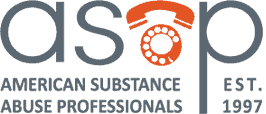In 2008, a research paper published by a psychology professor and two undergraduate students at Muhlenberg College in Allentown, Pa., found that 10% of Harry Potter fans surveyed reported showing characteristics of addiction after the final book in the popular series was released.
Looking back now, clinical psychologist David J. Ley, PhD, has a pop culture reference of his own to convey his feelings about the study.
“It was an example,” Ley says, “that the addiction model has jumped the shark.”
The phrase, a nod to the sitcom “Happy Days,” is an expression for the moment when a concept has reached its peak and begins losing its cache. Ley is one of several clinicians interviewed by Addiction Professional who laments that the term “addiction” has lost meaning in large part because it is used so loosely in everyday conversation.
“I’ve even made that mistake myself sometimes when I say I’m a chocolate addict,” says David Mee-Lee, MD, senior vice president for The Change Companies and a board-certified psychiatrist. “I’m not really a chocolate addict, where I would give up family, friends and work to ‘do chocolate.’ That’s when addiction takes over a person’s life. There is a danger in saying I’m a shopping addict or a running addict or a chocolate addict.”

